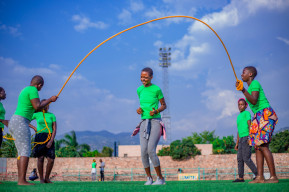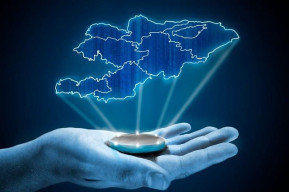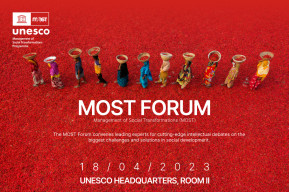Article
Main results of the Biennale of Luanda — Pan-African Forum for the Culture of Peace
The second edition of the “Biennale of Luanda — Pan-African Forum for the Culture of Peace”, jointly organized by the United Nations Educational, Scientific and Cultural Organization (UNESCO), the African Union (AU) and the Government of the Republic of Angola, was held in Luanda, Angola, from November 27-30, 2021, in a hybrid (face-to-face and online) format due to the COVID-19 pandemic.
The Biennale was aligned with the AU’s 2021 theme “Arts, Culture and Heritage: Levers for Building the Africa We Want” and the “Silencing the Guns by 2030” initiative of Agenda 2063 and was structured around 4 main themes, namely:
- Contribution of arts, culture and heritage to sustainable peace;
- Engaging youth as actors of social transformation for conflict prevention and sustainable development;
- Africa and its Diasporas in the face of conflict, crisis and inequality; and
- Harnessing the potential of the oceans for sustainable development and peace.
These four themes were intertwined into each of the main segments of the Biennale:
- Intergenerational Dialogue between Leaders and Youth;
- Thematic and Best Practices Forums;
- Festival of Cultures;
- Alliance of Partners.
The Biennale was much more than a simple event, it was a real success that became an opportunity to strengthen existing collaborations, forge new alliances, and co-create initiatives aimed at achieving peace and sustainable development in Africa.
Highlights of the Biennale included the following:
- 5 heads of state (the Presidents of Angola, Congo, Democratic Republic of Congo, Sao Tome and Principe, and Portugal)
- 2 vice presidents (Namibia and Costa Rica)
The opening ceremony was also attended by the Deputy Director General of UNESCO, the representative of the Chairperson of the African Union Commission, in the person of the AU Commissioner in charge of the Department of Agriculture, Rural Development, Blue Economy and Environmental Sustainability, and the Special Representative of the UN Secretary General to the African Union.
- 2 Ministers (Kenya and Mozambique) represented their respective Heads of State
Other Ministers of Culture and Youth integrated the delegations of their respective countries.
- The 8 Regional Economic Communities (RECs) committed themselves to be an integral part of the Secretariat of the Biennale and expressed their wish to be actively involved in future editions of the Biennale. During the closing ceremony, the President of the Economic Community of Central African States (ECCAS) spoke on behalf of the eight RECs and delivered the joint declaration on the culture of peace adopted on August 13, 2021.
- 120 youth leaders from all African countries and representatives of the diaspora (10 of whom were present in Luanda) discussed the role of youth in the prevention of violence and peaceful resolution of conflicts at the heart of the Biennale’s strategic vision and future plans. As a result, youth representatives played a crucial role throughout the event, from the intergenerational dialogues to the opening ceremony to the online partnership sessions.
- 65 partners from institutions, civil society, the private sector, academic institutions and international organizations from Africa and its diaspora, and other regions of the world - came together in online partnership sessions to discuss their interest in joining the Alliance of Partners and joining hands to develop projects and initiatives under the umbrella of the Biennale.
- 20 personalities and artists from different continents committed to the Culture of Peace participated, in person and virtually through interviews and testimonials.
- 44 countries represented in virtual pavilions presenting rich content on cultural diversity and examples of national initiatives, as well as partners and associated personalities.
- 180 participants acting as speakers, moderators, session chairs, including senior officials from the African Union, UNESCO, ICESCO, Regional Economic Communities (RECs), technical and financial partners as well as representatives of the UN system from over 60 countries.
- More than 10 events and 15 projects for the next Biennale in 2023 are part of the roadmap, which is an ever-evolving document, which contains key events in which the Biennale has been invited to participate, such as the AU Summit, the Aswan and Tana Forums and the Specialized Technical Committee (STC) on Youth, Culture and Sport etc.
The projects in the roadmap have been identified by the partners as potential bases for collaboration. Examples include “Institutional Capacity Building in Ocean Sciences and Coastal Vulnerability in Central Africa”, “Youth Weavers for Peace”, “ResiliArt and Cultural Industries”.
In conclusion, climate change, terrorism, youth inactivity, extremism and conflicts continue to threaten the security and well-being of African populations and the culture of peace is more than ever, necessary.
With this dynamic, the Luanda Biennale is becoming more and more assertive and has a rich program of events and projects that will mark the journey of the next two years (2022-2023).
The Organizing Committee wishes to express its wish to work in close collaboration with the partners who took part in this second edition of the Biennale in order to ensure their commitment to the promotion of the culture of peace on the African continent and beyond.






